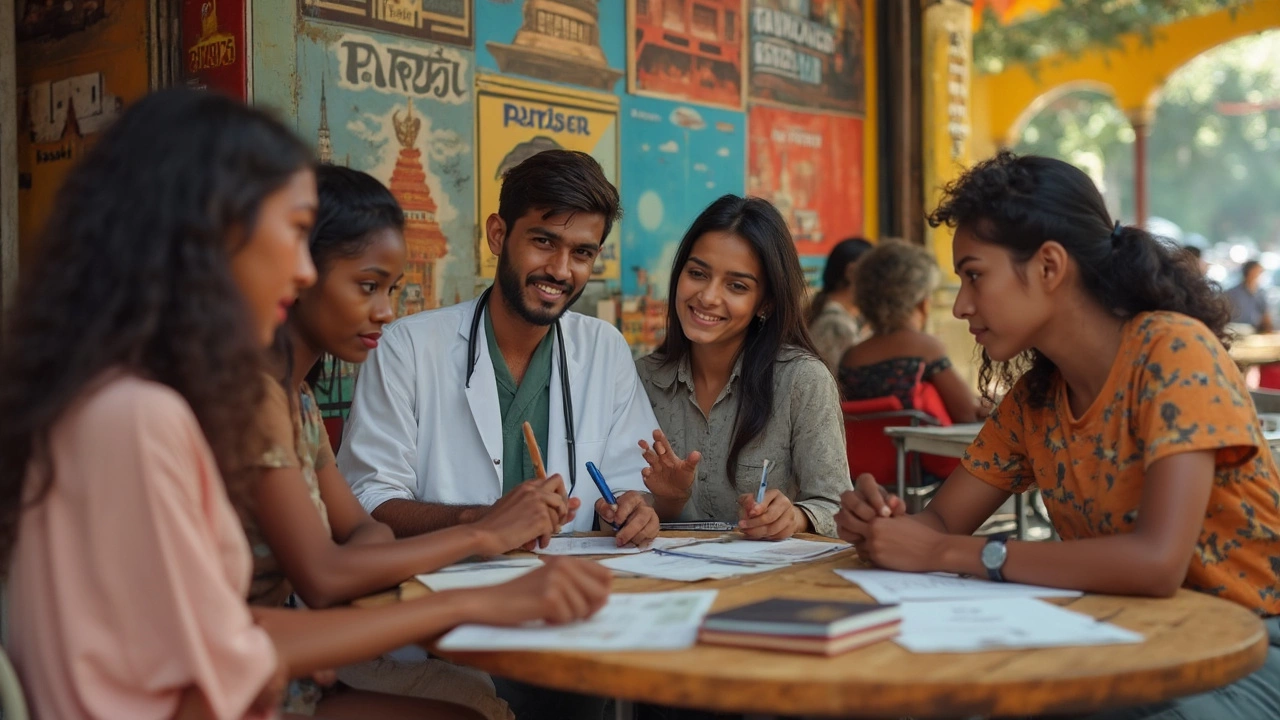India Health Requirements: What Travelers Need to Know Before Visiting
When planning a trip to India, a country with diverse climates, cultures, and health risks. Also known as the Indian subcontinent, it demands more than just a visa—you need to understand its health requirements to avoid avoidable illness.
Travelers often worry about getting sick from street food, water, or insects. The truth? Most illnesses are preventable. The standard vaccines for India include typhoid, hepatitis A, and tetanus. If you’re visiting rural areas or staying longer, consider rabies and Japanese encephalitis shots. Malaria isn’t everywhere, but it’s real in parts of central and eastern India—pack repellent and know when to take prophylactics. These aren’t suggestions from a doctor’s office brochure; they’re what real travelers use to stay healthy while eating spicy dosas in Kerala or riding rickshaws in Varanasi.
Food and water safety are bigger concerns than most people admit. You don’t need to avoid Indian food—you just need to know what’s safe. Hot, freshly cooked meals from busy stalls are usually fine. Avoid raw salads, unpeeled fruit, and ice in drinks unless you’re sure it’s made with purified water. Bottled water isn’t foolproof—check the seal. Many travelers get sick not from fancy restaurants, but from that one time they drank tap water thinking, “It’s fine here.” It’s not. And if you do get sick, know that pharmacies in major cities carry reliable antibiotics like ciprofloxacin without a prescription. Keep oral rehydration salts in your bag. They’re cheap, light, and can save you from a hospital visit.
Climate matters too. Heatstroke is common in summer, especially in Rajasthan or Delhi. Monsoon season brings dengue and chikungunya in coastal areas. Altitude sickness hits travelers heading to Ladakh or Sikkim without proper acclimatization. These aren’t rare cases—they happen every week to tourists who skip basic prep. Your body doesn’t adapt overnight, and India’s environment doesn’t adjust for visitors.
There’s no single checklist that fits every traveler. A backpacker in Goa needs different advice than a family visiting the Golden Temple. But the core rules stay the same: get the right shots, drink safe water, eat hot food, and carry basic meds. The posts below cover what Americans can safely eat, how to handle food poisoning on the road, and how safety in Punjab or Mumbai compares when it comes to health risks. You’ll find real stories, not generic warnings. No fluff. Just what works.
Do Americans Need Vaccines to Go to India? Your 2025 Guide
Planning a budget trip to India as an American? Getting the right vaccines is not just smart—it's often expected. This article breaks down which shots are required, which ones are just recommended, and the real risks behind skipping them. You'll get the latest updates for 2025, plus money-saving tips on clinics and when to start preparing. Stay healthy so your travel funds actually go toward seeing, not recovering.
Read more